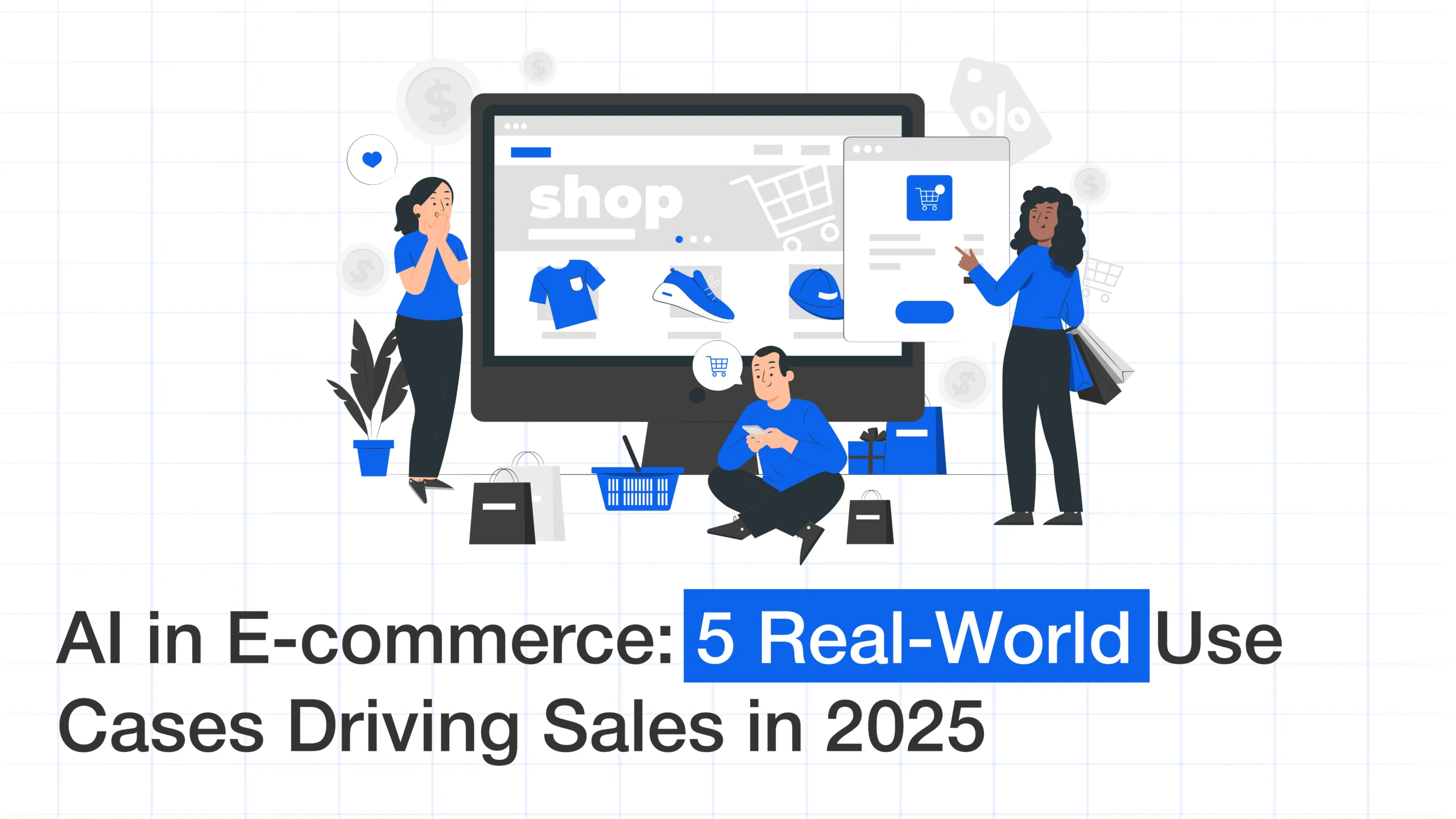Why Your Offshore Team Keeps Missing Deadlines (And…
You hired an offshore development team to accelerate your project.…

Artificial intelligence (AI) is no longer a future lifting-it is a current catalyst for revenue, storage and privatization in digital trade. In 2025, the AI application in e-commerce provides the size of how brands link consumers, optimize inventory, and predict buy behavior with supernatural precision.
Artificial intelligence (AI) is no longer a future lifting-it is a current catalyst for revenue, storage and privatization in digital trade. In 2025, the AI application in e-commerce provides the size of how brands link consumers, optimize inventory, and predict buy behavior with supernatural precision.
Whether you set up a start-up entrepreneur, retail innovator or e-commerce mark, it is important to understand AI use cases in e-commerce to be competitive. This article unpacks the five powerful applications of AI, which already runs the real results, back by study and strategic insight.
How does AI enhance personalization in e-commerce?
AI algorithms now craft unique user experiences based on browsing patterns, behavioral data, and even sentiment analysis. In 2025, personalization is far more than a “you might like” suggestion—it’s a complete reshaping of content, pricing, and product recommendations in real-time.
Real-World Case Study: ASOS
ASOS implemented a machine learning model that analyzes clickstream data to dynamically update product displays. The result? A 22% increase in conversion rates and higher average order value. AI learned what each user preferred—not just in products, but in how they shopped.
Is Conversational AI really improving customer service?
Yes—drastically. For e-commerce, the connection is understood. Today the reference, feeling and urgency. These chatbots and voting assistants can solve 80% of the questions without multilingual, always, and human growth.
Real-World Case Study: Sephora
Sephora uses an interactive chatbot that helps users with makeup training, skin care product choices, and ordering beauty sessions. The bot has contributed to a 15% reduction in cart abandonment and a 25% increase in loyalty program engagement.
What is visual search and how does it benefit e-commerce?
Visual search powered by AI applications in e-commerce allows users to upload images to find similar products instantly. Combined with advanced recommendation engines, this feature reduces friction in the buyer’s journey.
Real-World Case Study: IKEA
IKEA’s visual search tool helps users upload photos to find matching products. Paired with AI-driven recommendation engines, it boosted mobile conversions by 31% in six months.
Can AI predict what will sell next?
Yes—and it’s remarkably accurate. AI optimizes supply chains by analyzing market signals and massive amounts of historical data. By doing this, you can make sure that your inventory is neither too high nor too low.
Real-World Case Study: Zalando
By implementing AI in e-commerce case study analytics for demand forecasting, Zalando improved product availability by 40% while cutting excess inventory by 20%.
Is AI effective in preventing online fraud?
Extremely. AI models analyze spending behavior, IP anomalies, and transactional velocity to detect fraud in real-time—without slowing down the customer experience.
Real-World Case Study: Shopify
Shopify deployed AI-driven fraud detection systems that led to a 26% drop in chargebacks and an 18% improvement in secure checkout experiences, establishing itself as the best AI for e-commerce security use case.
The Future of AI-Based E-commerce Platforms
The horizon for e-commerce changes irreversible. The AI application in e-commerce is no longer optional; it is basic. From Connivance AI to smart supply chains and hyper rules for e-commerce, companies that benefit from these units in 2025 already form tomorrow’s market.
Whether you aim to hire a start-up team or scale up an existing platform, it is not just smart to integrate AI – it is strategic.
Ready to integrate AI into your e-commerce strategy?
Let our experts help you implement smart solutions for real-world results with Kirshi!
AI is used in visual search, inventory management, fraud detection, privatization, and automatic customer service.
AI-based e-commerce platforms for startups often benefit from tools such as Flate APIs, Amazon Personal, and Google Cloud AI.
AI user patterns, demographics and behavioral monitors recommend highly adapted product solutions that promote storage and conversions.
You hired an offshore development team to accelerate your project.…
Every growing business reaches a point where effort increases, but…
Most businesses start with simple technology. A basic website. A few…